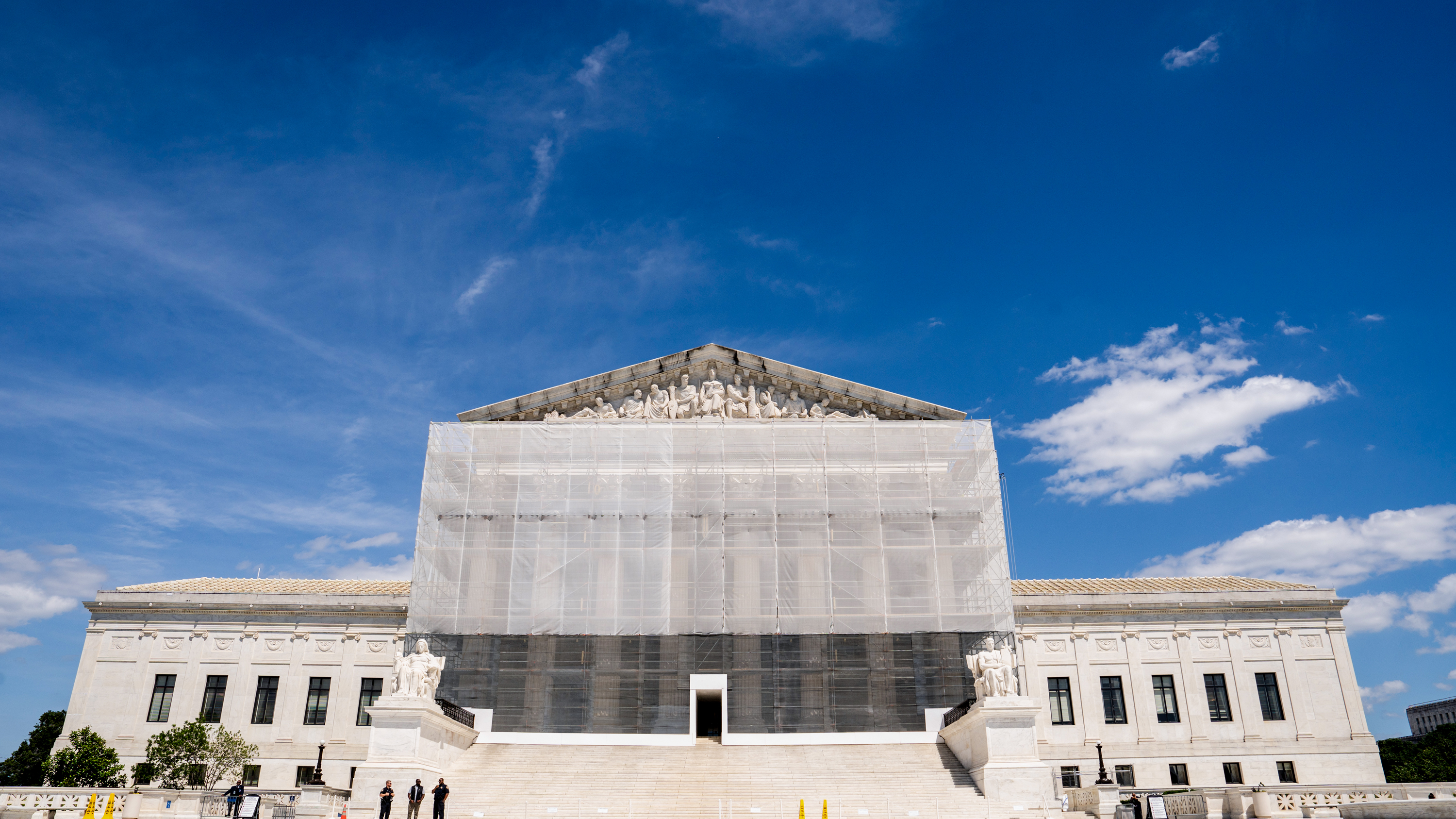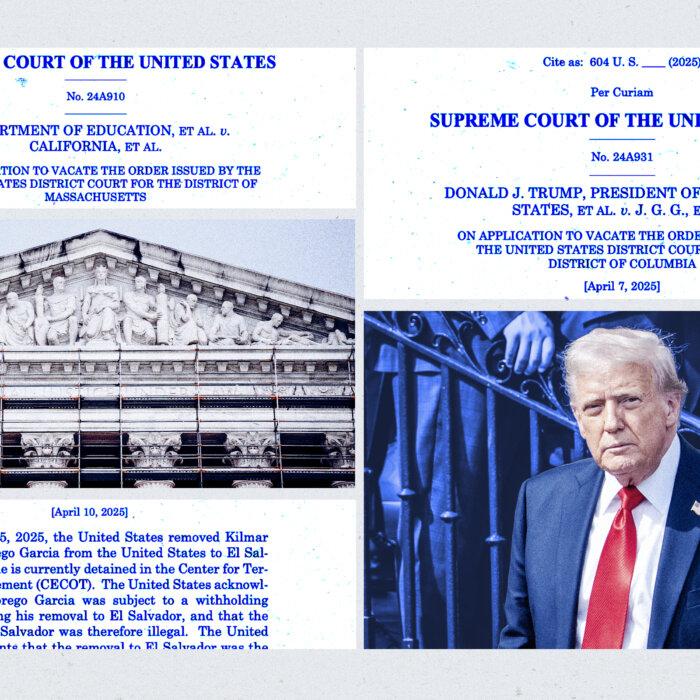The Supreme Court is heading into its summer recess, which means that the justices will be issuing a series of highly anticipated decisions throughout June. These decisions could yield significant precedents that ripple through the national political environment, affecting congressional and executive agendas alike.
So far, the court has already released rulings on electronic cigarettes, a deportation case, ghost guns, and TikTok.
Here are the decisions to look out for as the term comes to a close.
1. ‘Gender-Affirming Care’ for Minors
In December 2024, the justices were called upon to enter the gender debate by hearing arguments over Tennessee’s attempt to prevent “gender-affirming care” from being provided to minors. The case focused on the use of cross-sex hormones and puberty blockers rather than “gender-affirming” surgeries but raised constitutional questions common to both sets of procedures.Tennessee argued that its law was needed to protect underage patients from what it considers to be risky, unproven medical interventions, and that the U.S. Court of Appeals for the Sixth Circuit had correctly ruled that the law was constitutional.
2. Nationwide Injunctions, Birthright Citizenship
Lawsuits challenging President Donald Trump’s agenda have led to federal judges issuing injunctions on a range of policies. In turn, the administration has accused these judges of overstepping their authority, sparking a debate about the separation of powers.The Supreme Court justices looked at three lower court orders that issued nationwide blocks on Trump’s executive order on birthright citizenship. Lawyers representing the administration argue that the 14th Amendment does not require that children of illegal immigrants be automatically deemed citizens from birth.
“As far as I see it, this order violates four Supreme Court precedents,” Sotomayor said.
Thomas seemed the most sympathetic to the Trump administration’s position and suggested that nationwide injunctions do not have a solid historical basis.
“So we survived until the 1960s without universal injunctions?” Thomas said.

3. Sex and Gender in School Libraries
Parents sued the Montgomery County School Board in Maryland after it determined that parents could not opt their children out of book readings with controversial content about gender and sexuality. The policy mandated new “LGBTQ-inclusive” storybooks for elementary school students that promote gender transitions, Pride parades, and same-sex romance between young children.The justices seemed more sympathetic to the parents. Justice Brett Kavanaugh said the fact that the school board was democratically elected does not mean that it can violate rights.
“We’re here to protect the liberty and the Constitution from democratic excess,” he said.
4. Obamacare Preventive Care Panel
Members of the task force are appointed by the secretary of Health and Human Services, but the U.S. Court of Appeals for the Fifth Circuit said this violates the Constitution’s appointments clause, which states that the president may appoint officers to assist him in carrying out his responsibilities. Such officers must be appointed by the president and confirmed by the Senate.
Kavanaugh said the company’s argument assumes that the task force is “massively important” even though Congress has not clarified that that is the case. Sotomayor seemed to downplay the importance of task force members, likening them to the law clerks who help the justices with some of the things they “don’t know anything about.”

5. Age Verification for Pornography Websites
As politicians at the federal level attempt to regulate the digital adult entertainment industry through policies such as mandatory online age verification, Texas has passed a law requiring just that.The Fifth Circuit upheld the law, stating that it does not violate the First Amendment. An adult entertainment industry group, Free Speech Coalition, asked the Supreme Court to intervene.
The petitioners contended that the age verification procedures, which include presenting government-issued identification, discourage users from accessing the products out of concern that their personal information will be exposed by hackers. Texas argued that its law is constitutional.
The state cited Ginsberg v. New York (1968), which allowed the regulation of the sale of pornography offered in brick-and-mortar bookstores or sidewalk magazine stands on the theory that the material might be harmful to children. In this instance, a standard lower than heightened scrutiny was sufficient to assess the constitutionality of the regulation, the court held in Ginsberg.
The justices seemed divided during oral arguments. Sotomayor said applying the highest level of scrutiny used in cases related to adult entertainment would likely lead to the decision to strike down the Texas law.
6. Medicaid Funding for Planned Parenthood
Abortion returned to the Supreme Court this term with Medina v. Planned Parenthood South Atlantic, a case about Medicaid funding for Planned Parenthood, which provides abortions as well as birth control and pregnancy testing. In April, the justices heard arguments over South Carolina’s attempt to exclude the abortion provider from its state Medicaid program.At issue is whether the federal Medicaid Act created a right for low-income Americans to choose their providers. The original lawsuit was brought by a Medicaid client who wanted to use Planned Parenthood’s services. If the Supreme Court finds for South Carolina, the ruling could encourage states to eject the organization from their Medicaid networks, Planned Parenthood said.
The case goes back to 2018, when South Carolina Gov. Henry McMaster signed a pro-life executive order directing state health officials to “deem abortion clinics unqualified to provide family planning services.” It also required officials to terminate such clinics’ enrollment agreements and deny their enrollment applications in the future.

Kagan said the state “has an obligation to ensure that a person ... has a right to choose their doctor.”
7. Mexico’s Lawsuit Against Gun Companies
U.S. gun manufacturers have asked the Supreme Court to quash a lawsuit brought by the Mexican government, which alleges that U.S. companies are liable for guns being used in violence committed by criminal cartels in Mexico.The First Circuit ruled that the law requires companies to face lawsuits if they have knowingly violated state or federal law and if that violation has been a proximate cause of a given harm.
Sotomayor suggested that Mexico had not shown that the gun companies were liable. Mexico’s attorney said the lawsuit claimed that distributors were “knowingly supplying the dealers who we know sell unlawfully across the border.”
Sotomayor said: “We have repeatedly said mere knowledge is not enough. You have to aid and abet in some way. ... You have to intend and take affirmative action to ... participate in what they’re doing.”
8. Palestinian Terrorists
In two consolidated cases—Fuld v. Palestine Liberation Organization and United States v. Palestine Liberation Organization—the Supreme Court justices considered whether the families of terror attack victims could sue the Palestine Liberation Organization (PLO) terrorist group. In April, the Supreme Court seemed to lean toward upholding the federal Promoting Security and Justice for Victims of Terrorism Act, which empowers Americans harmed by terrorist attacks abroad to sue in U.S. courts.
Mariam Fuld sued under that law after her husband was killed near a West Bank shopping mall in 2018. The attack was perpetrated by a Palestinian terrorist allegedly incited by the PLO, which uses a so-called martyrs’ fund for families of Palestinians killed, imprisoned, or injured when attacking Israel.
When the case reached the U.S. Court of Appeals for the Second Circuit, Fuld lost because the judges said the law violated due process protections.
9. Nuclear Waste Storage
Texas objected to the federal Nuclear Regulatory Commission’s attempt to license private storage providers to operate an interim storage facility in the Permian Basin, which is the nation’s most productive oil field. The state said the proposed location could jeopardize the oil field.Texas sued, and the Supreme Court took up the Nuclear Regulatory Commission v. Texas case after the state won in the Fifth Circuit. Judges there said the federal Atomic Energy Act does not authorize the commission to give a private business a license for an interim storage facility. The federal government told the Supreme Court that the Fifth Circuit’s decision imposed “novel limits” on the commission’s licensing powers and upended a “44-year-old regulatory framework for licensing storage of spent fuel.”

















